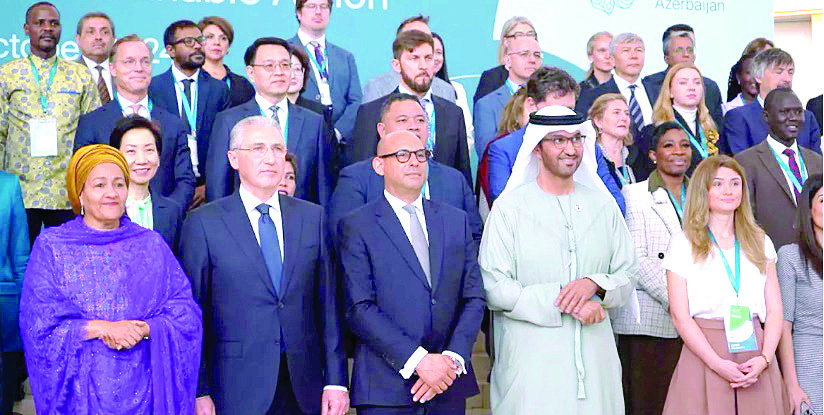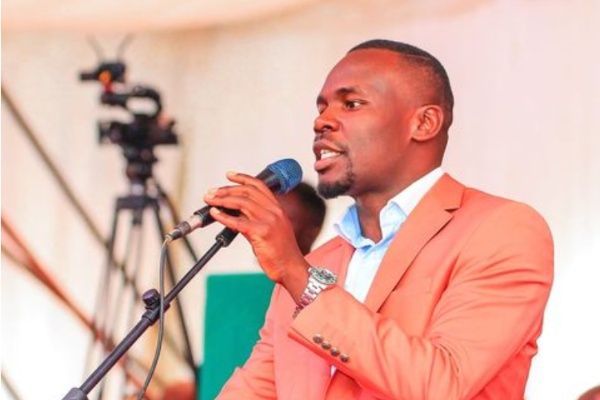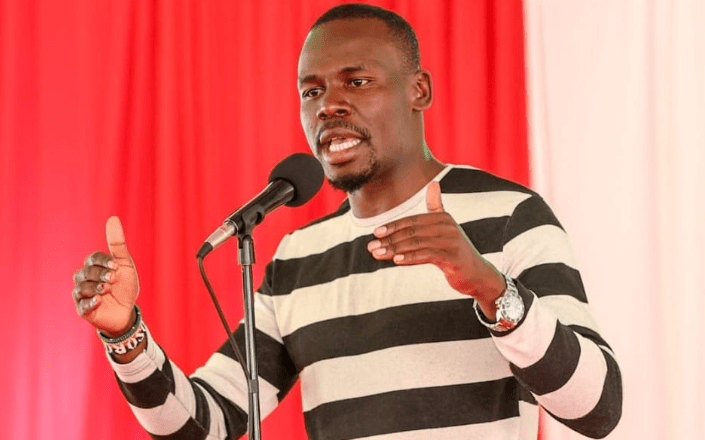Climate financing increase to dominate Baku COP29 meet

Calls for an increase in climate financing are expected to dominate talks as world leaders gather in Baku, Azerbaijan for the COP 29, which kicks off today until November 22.
The United Nations meeting comes at a time when there is a growing need to fund climate adaptation through capacity building and technology transfer to mitigate effects of climate change.
Countries in the Global South are bearing the brunt of the polluted globe with Kenya, for instance experiencing back-to-back erratic climatic conditions including the recent drought that ushered in El Nino deluge within two years.
Despite the developing countries emitting the least amount of greenhouse gases that cause global warming, they are the worst hit by the outcomes of climate change.
Rising inflation
Majority of the countries are currently struggling with a huge debt burden and rising inflation that reduces their ability to finance climate adaptation programmes.
According to the 2024 Adaptation Gap Report released by United Nations Environment Programme (UNEP), large adaptation finance gap will mean higher losses and damages for developing countries, which will also impact on developed countries through international and transboundary risk cascades.
“As developing countries experience increasing loss and damage, they are already struggling with increasing debt burdens. Effective and adequate adaptation, incorporating fairness and equity, is thus more urgent than ever. The report calls for nations to step up ambitions by adopting a strong new collective quantified goal on climate finance at COP29 and including stronger adaptation components in their next round of climate pledges, or nationally determined contributions, due early next year ahead of COP30 in Belém, Brazil,” the UN agency said.
Devastating communities
Emphasizing the need for an increase in adaptation financing, UNEP Executive Director Inger Andersen who spoke during the release of the report said that climate change is already devastating communities across the world, particularly the most poor and vulnerable.
“Raging storms are flattening homes, wildfires are wiping out forests, and land degradation and drought are degrading landscapes. People, their livelihoods and the nature upon which they depend are in real danger from the consequences of climate change,” Andersen said.
“Without action, this is a preview of what our future holds and why there simply is no excuse for the world not to get serious about adaptation, now.”
Similarly, UN Secretary-General António Guterres noted how existing inequalities in climate financing are affecting the poor and vulnerable communities while those responsible for polluting the world carry on with their lives unperturbed.
“Climate catastrophe is hammering health, widening inequalities, harming sustainable development, and rocking the foundations of peace,” Guterres said.
He went on: “The vulnerable are hardest hit. And taxpayers are footing the bill. While the purveyors of all this destruction – particularly the fossil fuel industry – reap massive profits and subsidies.”
UNEP recently said that the world is staring at a catastrophic temperature rise of between 2.6 to 3.1°C this century without immediate and major cuts to greenhouse gas emissions.
“There is therefore an urgent need to significantly scale-up adaptation this decade to address rising impacts. But this is being hampered by the huge gap that exists between adaptation finance needs and current international public adaptation finance flows,” the agency says in the report.
Absolute agenda
Sadly, the world now faces another impediment in its efforts to tackle climate change, after Americans voted for Donald Trump who is yet to make his absolute agenda on pollution known.
The United States is ranked highly in emission of carbon dioxide and other greenhouse gases globally yet during campaigns, Trump vowed to undo all regulations that his successor Joe Biden had initiated to reduce carbon emissions and use of fossil fuels.
However, UNEP noted in the report that international public adaptation finance flows to developing countries increased from US$22 billion (Sh2.8t) in 2021 to US$28 (Sh3.6t) billion in 2022: the largest absolute and relative year-on-year increase since the Paris Agreement that was signed in 2016.
“This reflects progress towards the Glasgow Climate Pact (signed in 2021), which urged developed nations to at least double adaptation finance to developing countries from about US$19 billion (Sh2.4t) in 2019 by 2025,” UNEP said.
However, the agency urged that even achieving the Glasgow Climate Pact goal would only reduce the adaptation finance gap, which is estimated at US$187-359 billion (Sh24.2-46.5 trillion) per year, by approximately 5 per cent.












